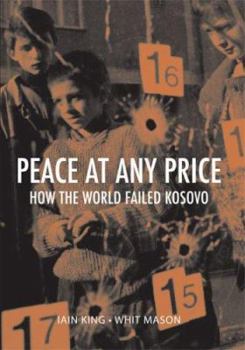Peace at Any Price: How the World Failed Kosovo (Crises in World Politics)
Select Format
Select Condition 
Book Overview
In June 1999, after three months of NATO air strikes had driven Serbian forces back from the province of Kosovo, the United Nations Security Council authorized creation of an interim civilian administration. Under this mandate, the UN was empowered to coordinate reconstruction, maintain law and order, protect human rights, and create democratic institutions. Six years later, the UN's special envoy to Kosovo, Kai Eide, described the state of Kosovo: "The current economic situation remains bleak.... respect for rule of law is inadequately entrenched and the mechanisms to enforce it are not sufficiently developed.... with regard to the foundation of a multiethnic society, the situation is grim."In Peace at Any Price, Iain King and Whit Mason describe why, despite an unprecedented commitment of resources, the UN Mission in Kosovo (UNMIK), supported militarily by NATO, has failed to achieve its goals. Their in-depth account is personal and passionate yet analytical and tightly argued. Both authors served with UNMIK and believe that the international community has a duty to intervene in regional conflicts, but they suggest that Kosovo reveals the difficult challenges inherent in such interventions. They also identify avoidable mistakes made at nearly every juncture by the UN and NATO. We can be sure that the international community will be called on to intervene again to restore the peace of shattered countries. The lessons of Kosovo, cogently presented in Peace at Any Price, will be critically important to those charged with future missions.





